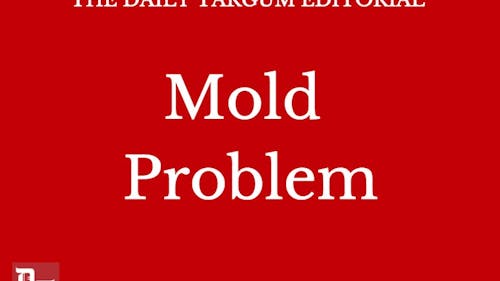EDITORIAL: Infrastucture issues not new at Rutgers

The University is currently attempting to deal with issues arising from a persistent infestation of mold in the Psychology Department building on Busch campus. The issue, which some professors say has been going on for years, has forced professors to relocate from their offices, teaching spaces and labs and into new buildings. Included in the affected spaces, which are numerous, is the administrative office for Rutgers’ recently established New Jersey Autism Center of Excellence. This current issue is just one example of the consequences of seemingly neglectful and ineffective practices by the University to curb problems with infrastructure.
It is clear that despite simply being disgusting, mold has some serious adverse effects on people’s health. The Institute of Medicine has found evidence linking indoor exposure to mold with conditions like upper respiratory tract symptoms, coughing and wheezing. These are some of the direct effects of the presence of mold — but there are even more indirect consequences that arise when a mold issue in a school goes relatively unchecked like this.
On Monday, Associate Professor Pernille Hemmer in the Department of Psychology arrived at work to find her lab unusable. She resorted to sending her students home, and is unsure when she will be able to return to her research. Hemmer recently received a National Science Foundation “career grant” worth approximately $500,000, but the mold situation has so far thrown a wrench in her ability to reasonably utilize it. Grants like that one require faculty members to report research and work being done to the providers of the grant — work that Hemmer is unable to conduct as a consequence of the mold issue.
But issues like this are not exclusive to the psychology building, and are certainly nothing new at Rutgers. Associate Professor Julien Musolino told The Daily Targum that the mold issues in the Psychology Department building have been persisting for at least 10 years. Additionally, in 1984, The New York Times reported that asbestos had been found in eight Rutgers residence halls — Demarest, Stonier, Nicholas, Lippincott, Katzenbach, Gibbons and Quads 2 and 3. Fast forward to 2018, on move in day this school year, students living in Gibbons found a note on their desks discussing the presence of asbestos in their living spaces. It is safe to say that not much has changed.
Infrastructure issues do not stop at asbestos and mold, though. Flooding, too, is not an uncommon issue in Rutgers buildings. Last January, two buildings, the Easton Avenue Apartments and Hickman Hall, experienced floods as a result of burst pipes.
It is not unreasonable to urge the University’s administration to take more diligent and effective care of issues that arise with regard to the school’s infrastructure. Not only should effective care be taken, but preventative care, as well. If the administration had begun seriously working a decade ago to ensure the mitigation or elimination of mold in the Psychology Department building, the department would not be experiencing issues to the extent that they currently are, and professors would be able to conduct their research without having to worry about relocating or not being able to access their labs. And what is more, the University would not have to worry about pouring money into refurbishment or even rebuilding. But if money is the issue, then maybe the budget should lend more attention to infrastructure issues like the ones mentioned instead of things like a parking deck on Livingston campus, where there is already seemingly more than enough available parking space for basketball game days.
The Daily Targum's editorials represent the views of the majority of the 150th editorial board. Columns, cartoons and letters do not necessarily reflect the views of the Targum Publishing Company or its staff.



